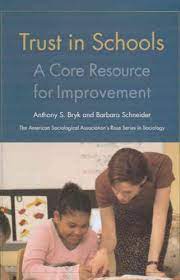Introduction
Over the past few years, the transformation of traditional schools into Trust schools has emerged as a popular strategy for improving educational outcomes across global education systems. Although Trust schools are touted for their ability to provide greater autonomy and accountability, concerns surrounding trustworthiness have begun to rock the foundations of these reforms. In this article, we delve into the issues arising from the lack of trust in Trust schools and how it may impact future educational initiatives.
The Rise of Trust Schools
Trust schools are state-funded institutions that operate under agreements with non-profit charitable trusts. These partnerships typically consist of a group of schools that share resources, knowledge, and expertise to drive improvement. Designed to offer increased autonomy and flexibility, Trust schools have the potential to innovate and create higher standards for learning.
A Crisis of Trust
While Trust schools possess an inherent promise to revolutionize education systems, there is a growing sense of distrust that threatens their long-term viability. Many critics argue that Trust schools lack transparency in terms of funding, governance, and decision-making processes. This can lead to significant communication gaps between stakeholders – including teachers, parents, students, and local authorities.
Impact on Teaching Expertise
As concerns about trustworthiness continue to swirl around Trust school reforms, teaching expertise is emerging as a central casualty. Struggles with transparency and accountability can create issues within the workforce – including teacher dissatisfaction, high turnover rates, low morale, and an inability to attract top talent. Additionally, skepticism around progressive education can lead teachers to question the efficacy of innovative teaching practices.
Community Resistance
An atmosphere of doubt surrounding Trust schools can result in backlashes from local communities who may feel disconnected from decision-making processes. Community resistance runs deeper when these schools seem more focused on competition rather than collaboration. It is crucial for Trust school leaders to prioritize transparent communication with parents and communities in order to build trust and foster a collaborative environment.
Reimagining Trust Schools
To overcome these trust-related challenges, it is essential for all stakeholders involved in Trust schools to actively engage in discussion and seek open collaboration. By strengthening transparency, establishing strong governance structures, and prioritizing communication with teachers and communities, Trust schools can regain the public’s faith in their ability to transform education.
Conclusion
While Trust schools have the potential to revolutionize education systems across the globe, they must first address the critical issue of trustworthiness. By fostering an atmosphere of transparency, accountability, and collaboration among all stakeholders, Trust schools can rebuild trust in their reforms and embrace innovation to foster teaching expertise for years to come.





